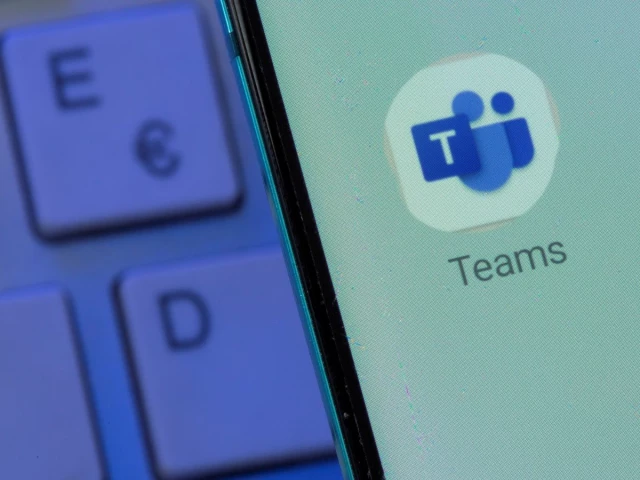Auto “in office” status could influence how Pakistani organisations manage attendance
The collaboration platform Microsoft Teams is set to introduce a new feature that will automatically update a user’s work location status. For example from “working remotely” to “in the office” when their device connects to a predefined company Wi-Fi network or specific desk-connected peripheral.
According to official documentation from Microsoft Corporation, organisations can enable “automatic detection of work location” via two signals: connection to a wireless network or to a desk peripheral such as a monitor. The documentation adds that the wireless-network detection option is “currently in preview”.
By default, the feature is off and users must provide consent before their work location can be detected.
Industry journalism site UC Today quoted the feature’s roadmap summary, stating:
“When users connect to their organisation’s Wi-Fi, Teams will automatically set their work location to reflect the building they are working in.” UC Today
The update is designed to streamline hybrid-work coordination by reducing manual status changes, but it also raises questions about employee privacy and organisational transparency. Platforms such as Windows Central have described the feature as:
“automatically snitching on your live location when connected to the office Wi-Fi network.” Windows Central
For organisations in Pakistan, where hybrid and remote working arrangements have grown rapidly since the pandemic, the capability may offer operational benefits such as clearer tracking of who is on-site and simplifying desk-booking systems. On the other hand, worker-rights advocates and data-governance specialists may raise concerns about consent, transparency and the boundary between coordination and monitoring.
According to Microsoft’s documentation, administrators must first configure a “Places” directory with building and floor details, and associate SSIDs/BSSIDs of corporate wireless networks to those buildings. Only then can the feature function. The rollout of wireless-network-based location detection is expected to be part of a broader update, though no definitive date for general availability has been confirmed.
For firms in Pakistan, where hybrid and remote working have expanded significantly, the capability offers potential benefits such as simplified desk-booking, improved visibility of on-site presence, and streamlined hybrid-team coordination.
However, the local data-privacy and employment environment presents several considerations:
Pakistan currently has no comprehensive data-protection law governing personal data processing by private employers; the draft Personal Data Protection Bill 2025 remains under consultation.
While the Constitution guarantees a right to privacy (under Article 14(1)), and the Prevention of Electronic Crimes Act 2016 addresses certain electronic-data issues, detailed rules around employee-location monitoring and employer obligations remain unclear.
A recent ruling by the Federal Ombudsman Secretariat for Protection Against Harassment (FOSPAH) stressed that surveillance of employees should not be weaponised for undue control: ‘Respect for privacy and dignity is a core workplace right’.
What Pakistani employers should do
Organisations intending to deploy the location-auto-detection feature in Teams should update their internal policies to explain when and how physical-location data will be used, stored and who has access.
Employers should obtain voluntary consent from users for location detection, communicate clearly the buildings/networks mapped to the tool, and offer a manual status override option.
Both employers and employees should ensure this feature is used for coordination rather than surveillance: trust-based culture is more effective than simply tracking presence.
What employees should ask
“Will my ‘in-office’ status be triggered automatically when I connect to Wi-Fi, and will I be notified?”
“What is the purpose of tracking location — is it for desk-booking, security, or attendance monitoring?”
“Who in my company can see my location status and what measures protect my data?”
“Can I override or opt out of the auto-detection feature while still participating in Teams?”
Outlook
As hybrid work arrangements deepen in Pakistan, technologies that streamline presence-management will likely grow. This tool from Microsoft may provide operational value, but its responsible usage depends on clear policies, transparency and respect for employee dignity. Without that, the line between coordination and monitoring may blur. Their value will depend not only on functionality, but on how responsibly they are deployed.

